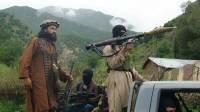“Two security personnel killed and four others wounded as miscreants blow up an electricity tower in the Dargai area of South Waziristan. Militants beat up health workers at Manikhel village of Darra Adamkhel warning them not to vaccinate children in the area. Security forces foil a terrorism bid by seizing an explosive-laden vehicle in the Saranan area near Quetta. A military truck ferrying Balochistan Constabulary personnel gets blown up near Bhoosa Mandi on the eastern bypass, killing 12 security personnel and leaving as many injured.”
This is a glimpse of the violence let loose by the Taliban on May 21 and 22.
There has hardly been a day since the U.S. military’s invasion of Afghanistan in 2001 when we did not see or hear news of horrific violence by the Taliban or their likes.
Therefore, a sense of insecurity, intolerance and gloom generated by terrorists is severely impacting people’s psychology.
The leadership of PML-N and PTI has vowed to engage the Taliban or their likes in talks to establish peace in the country. Whom will they choose to talk to from a plethora of militant organizations?
Taliban is not an entity but an ideological phenomenon. Splinter factions working at the behest of some known militant outfits are also involved in wreaking havoc in the country.
The Taliban comprise militant groups led by various fanatics and criminals that mostly operate independently to enforce their ideology.
PML-N chief Nawaz Sharif has said, “Terrorism is one of the most serious problems plaguing the country and any offer by the Pakistani Taliban to talk should be taken seriously.”
His party has been criticized many a time for not cracking down on militants in its stronghold — the Punjab province.
On the other hand, PTI’s nominated Chief Minister of KPK has already met Maulana Samiul Haq, head of his own faction of JUI-S, who is said to have trained many Taliban leaders at his seminary in Akora Khattak.
The Taliban do not believe in democracy and term it un-Islamic. To prove their aversion to democracy, they killed more than 150 people during the election season including 24 on the polling day.
The people of Pakistan, the government and security forces, who have lost thousands of men fighting the war waged by the Taliban within the country’s geographical boundaries, have suffered enormously at the hands of Taliban.
Those who have suffered are averse to the idea of talking to them. They say, the Taliban have adopted the trait of killing and spreading terror for their pay masters, their only livelihood.
Also, analysts who monitored earlier agreements with the Taliban are convinced that militants do not believe in peace as they always use the interim period during talks to regroup and then return to their inhuman practices.
Peace deals reached with the Taliban earlier in an effort to placate them did not last more than a couple of months. The Shakai Peace Agreement with Nek Mohammad Wazir in April 2004, Srarogha Peace Agreement with Baitullah Mehsud in February 2005, and Swat Agreement with Fazlullah in May 2008 fell apart because after every signing, the Taliban would backtrack on their promises and restart attacking the State infrastructure and security establishment. Pakistani military’s agreements with Hafiz Gul Bahadur and Faqir Muhammad also met similar fate.
Why did the agreements not work? These bore no fruit because all agreements were signed by the government from a position of weakness, where the militants always managed to get concessions. None demanded off them to surrender arms. The Taliban’s promises to hand over foreign terrorists, as some agreements demanded, were not met.
Massive amounts of money provided to militants as compensation against damages during military operations were either used to buy more weaponry or for funding of future operations against the Pakistani military.
The downside of affording Taliban and other militant organizations more chances to negotiate peace would strengthen their status in the tribal areas and people would start believing in the militant leaders on seeing the political and military leadership talking across the table.
The nation hopes that the new government stands by all those who want the war against terror to succeed. About 35,000 civilians and over 5,000 soldiers have been killed by the militants.
According to a revised military document, homegrown militancy, especially the Taliban and other militant factions, has been recognized as the biggest threat to national security.
The saner part of our polity has already acknowledged the ongoing war on terror as their own. Others need to do it as soon as possible in order to get out of the quagmire.
For whatever reason, the previous government was right in not falling in the Taliban trap of talks, without the assurance that they would lay their arms and renounce militancy.
The huge voter turnout was reflective of peoples’ resolve to stand up to support annihilation of these militants by the armed forces.
Talking to them despite the common resolve of the citizenry would give credence to the misguided minority and tantamount to accepting it as a force to reckon with.
The army chief praised voters who came out in large numbers to vote extremists out and termed it defiance of the unfounded dictates of an insignificant and misguided minority.
The Taliban are on the run. Their financial resources are drying out fast and are finding very few takers of their ideology. They must not be given more time and space as a breather in the name of talks wherein they could regroup against democracy, security and integrity of the country.
The writer is a journalist based in Islamabad.






















